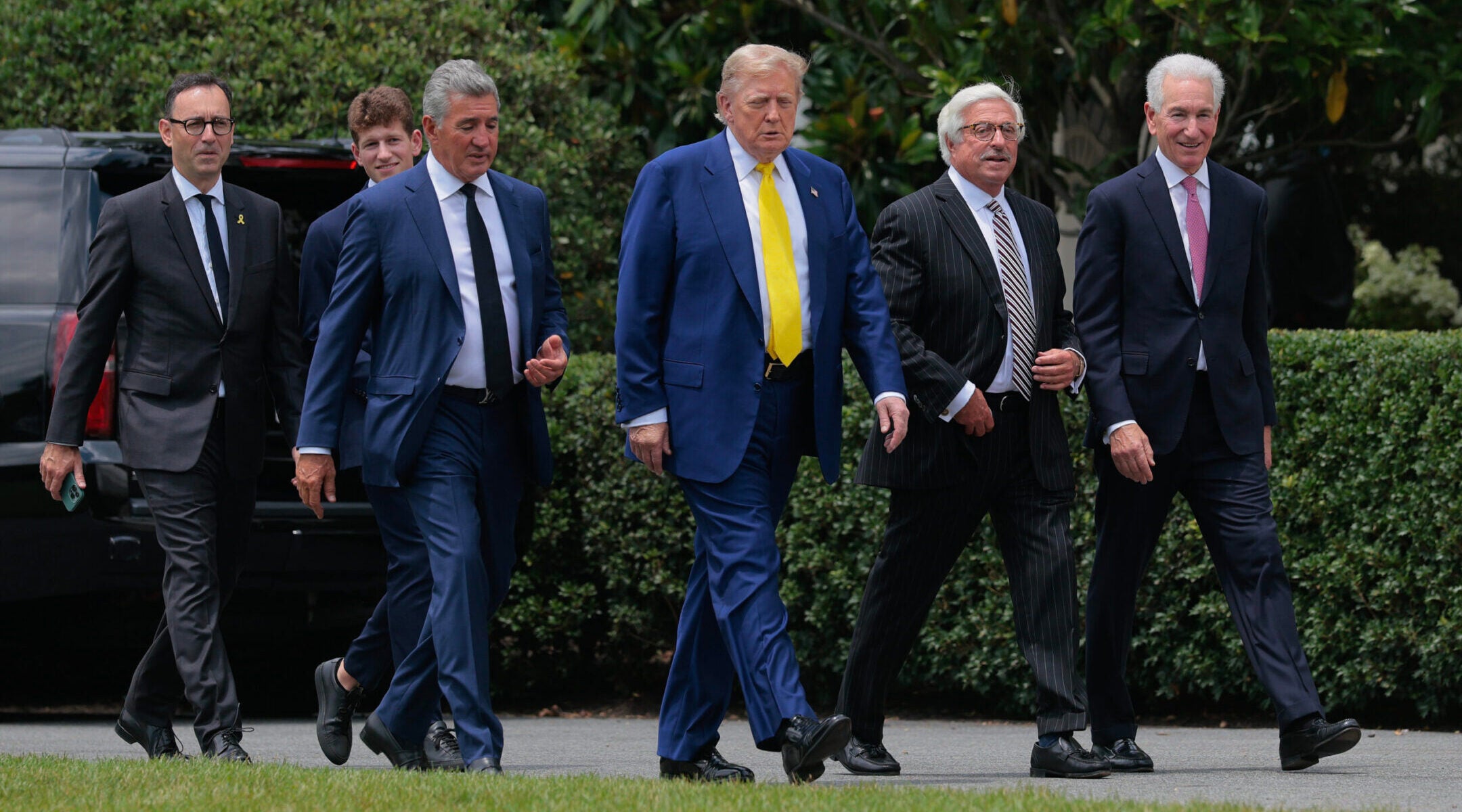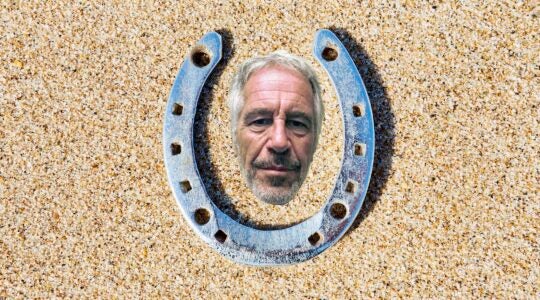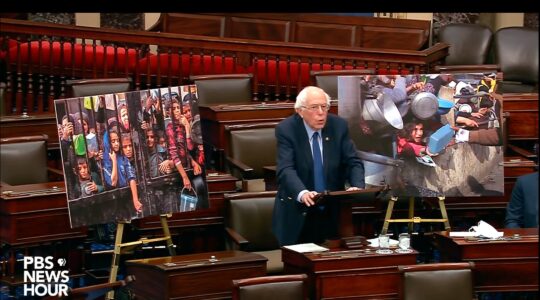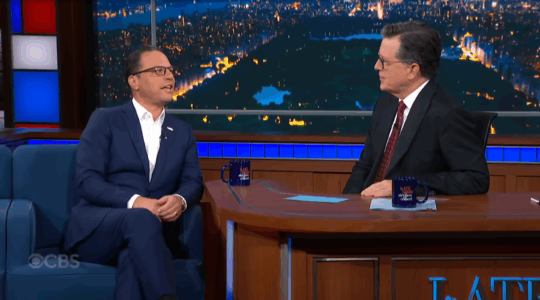As the entire world psychoanalyzing Donald Trump to figure out whether he will decide to join Israel’s attacks on Iran, the president is offering little clarity.
“I may do it,” Trump told reporters on Wednesday, amid reports that the Israelis believe he is preparing to enter the war. “I may not do it. I mean, nobody knows what I’m going to do.”
But several key foreign policy decisions in his first term could signal which way he will go — if only they did not point in opposite directions.
The past decisions reflect Trump’s long-held view of himself as both the ultimate dealmaker and tough guy. Yes, Trump loves to get a deal done — and the bigger the better. He also believes unpredictability and the perception that he will go further than anyone in a fight are keys to a successful negotiation.
Trump came to office promising to do far more than his predecessors to stand up for America, but also to ensure better relations with longtime adversaries, most notably Russia, China and North Korea. He dismissed long-standing diplomatic concerns and protocols about when and how to negotiate with our enemies, often looking to go right to direct leader-to-(supreme)-leader talks, a strategy rooted in his deep faith in his singular ability to get a deal done — and one that would be much better than any of his predecessors’.
In pursuing direct talks with the likes of Vladimir Putin and Kim Jong Un, Trump disregarded or dismissed inconvenient U.S. intelligence. He set the tone early, in a high-profile 2017 pre-Super Bowl interview with Fox shortly after his inauguration, pushing back on Bill O’Reilly’s befuddlement over Trump’s respect for Putin. “But he’s a killer,” O’Reilly said. Trump replied: “There are a lot of killers. You think our country’s so innocent?”
Trump reveled in his pursuit of deals — and not just the ones draped in fanfare, such as the Abraham Accords. In order to get U.S. troops out of Afghanistan, he went so far as to give Taliban leaders the Camp David treatment.
On the flip side, he also displayed a willingness to ramp up confrontation.
Despite his complaints about Ukraine, Trump has boasted about providing Kyiv with offensive weapons that President Barack Obama had not approved. And he took a bold and previously off-limits step on Iran: the killing in January 2020 of Qassem Soleimani, the country’s most influential military commander. Soleimani was the leader of the Quds Force, the unconventional warfare arm of Iran’s Islamic Revolutionary Guards Corps. Soleimani was seen as the most important figure in supporting and coordinating Iran’s network of terror proxies across the region and having a hand in repeated attacks against Israeli and U.S. targets spanning decades.
Previous U.S. leaders – and their Israeli counterparts – had opted against targeting Soleimani out of fear of what the fallout from such a move would bring. But, fed up with attacks on U.S. forces by Iran-backed militias in Iraq, Trump ordered a U.S. strike on a vehicle carrying Soleimani near the Baghdad airport.
Just as Netanyahu now insists Israel was spurred by new intelligence showing Iran was “marching very quickly” toward a nuclear weapon, the Trump administration immediately framed the decision to take out Soleimani as a response to an “imminent threat” involving attacks on U.S. targets. The “imminent” part of the claim has been questioned, but Trump has stood by it.
“They were not meeting to discuss child care, OK?” Trump would tell Axios’ Barak Ravid in 2021. “They had a lot of very bad intentions. And we knew that. So I felt very strongly that our country really had little choice.”
Whether Soleimani was in Iraq to plan immediate attacks or not, American officials blamed him for the deaths of at least 600 U.S. troops who had been deployed to the region since the Iraq War in 2003.
Israel reportedly provided key intelligence for the operation, including tracking the cell phone of the Iranian general. Rather than being seen as a high point in U.S.-Israeli coordination, however, the hit on Soleimani became a point of contention and bitterness — at least in Trump’s mind.
“I can’t talk about this story,” Trump told Ravid. “But I was very disappointed in Israel having to do with that event. … People will be hearing about that at the right time.”
Trump was still upset a few years later. In the days after Hamas’ surprise attack against Israel on Oct. 7, 2023, he vented to an audience at Mar-a-Lago.
“Israel was going to do this with us, and it was being planned and working on it for months,” Trump reportedly said. “We had everything all set to go, and the night before it happened, I got a call that Israel will not be participating in this attack.”
Trump added: “I’ll never forget that Bibi Netanyahu let us down.”
Multiple media outlets have quoted unnamed U.S. officials as pushing back on Trump’s claim that Israel pulled out at the last second, saying it was completely inaccurate. “They were never on board with it,” a former senior White House official told NBC News. “They always thought it was a dangerous and destabilizing idea.”
Ravid offered up the complete opposite debunking in his reporting, citing a senior Israeli defense official who said that Israel had proposed playing a more active role, but the U.S. insisted on executing the strike.
Soleimani was particularly close to Iran’s supreme leader, Ayatollah Ali Khamenei. “The loss of our dear General is bitter,” Khamenei said on what was then called Twitter. “The continuing fight and ultimate victory will be more bitter for the murderers and criminals.”
U.S. intelligence and law enforcement believe that in response to Soleimani’s killing, Iran ordered the assasination of Trump and other officials, including then-Secretary of State Mike Pompeo and National Security Adviser John Bolton. The Iranian plot is not believed to be connected to the high-profile attempts in Pennsylvania and Florida to assassinate Trump during the 2024 campaign.
The Biden administration responded by upping protection for Trump and the other officials. Shortly after returning to office, Trump revoked Pompeo’s and Bolton’s security details, despite the threats from Iran, leading to speculation that the move was in part related to his gripes with his former aides.
“When you have protection, you can’t have it for the rest of your life,” Trump told the New York Times, adding, “I mean, there’s risks to everything.”
Trump’s political friends and foes paint him as someone who can hold a grudge. But with Iran and the ayatollah, he has repeatedly seemed to let assassination attempts be bygones. During the 2020 and 2024 campaigns, and the first few months of his second term this year, Trump has pushed for a new and improved deal as the preferred approach to curtailing Iran’s nuclear deal, going so far as to send a personal letter to Khameini in March.
Back in March, the Times reported this week, Trump would “regale” visitors to the Oval Office and guests on Air Force One about his “beautiful letter” to the ayatollah. According to the Times: “One visitor treated to a live rendition recalled the letter’s basic message as: I don’t want war. I don’t want to blow you off the map. I want a deal.”
That was then. On Tuesday, talking to reporters on Air Force One, Trump sounded as if he had shifted into tough-guy mode.
“They should have done the deal. I told them, ‘Do the deal.’ So I’m not too much in a mood to negotiate.”
JTA has documented Jewish history in real-time for over a century. Keep our journalism strong by joining us in supporting independent, award-winning reporting.






